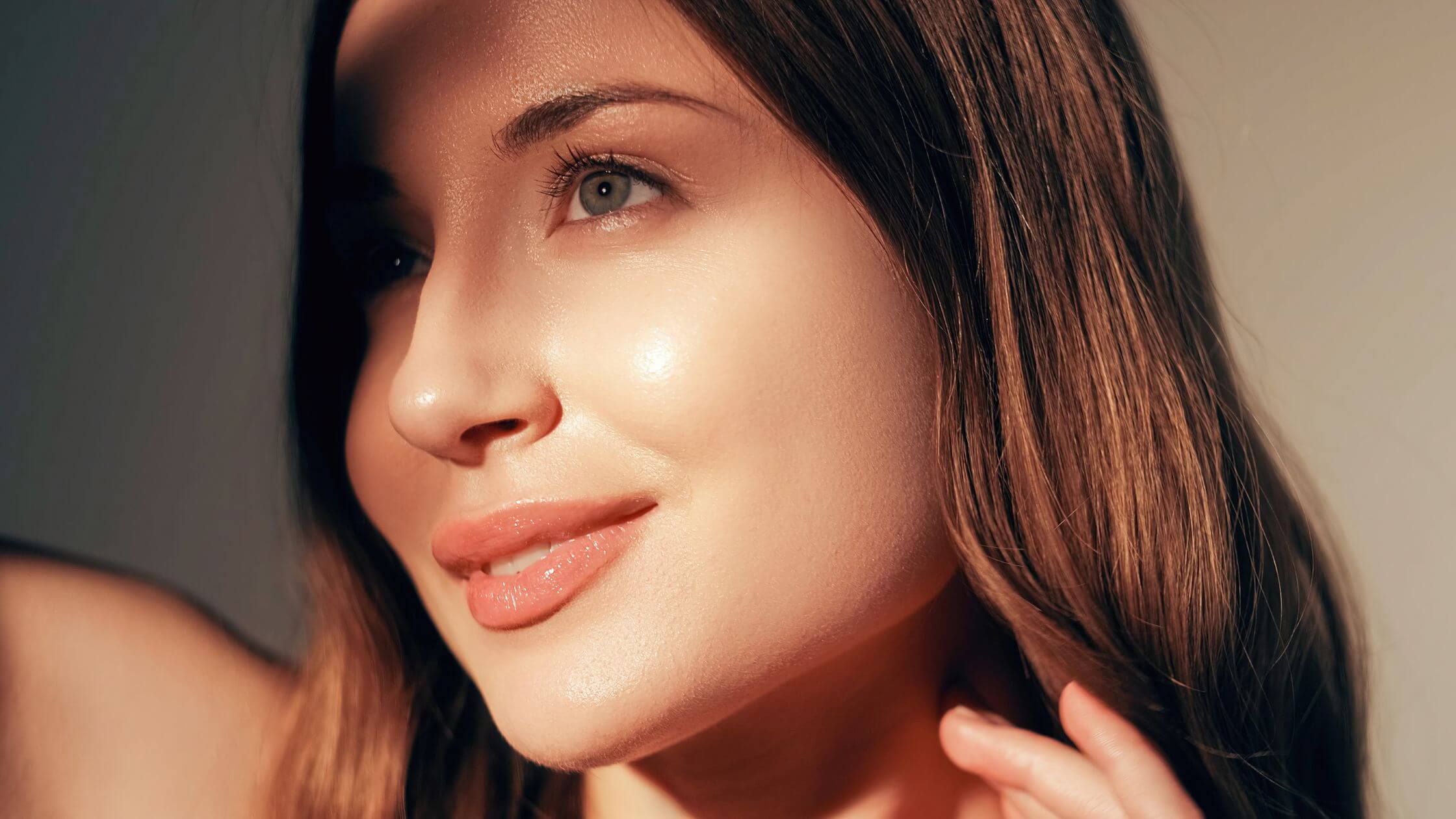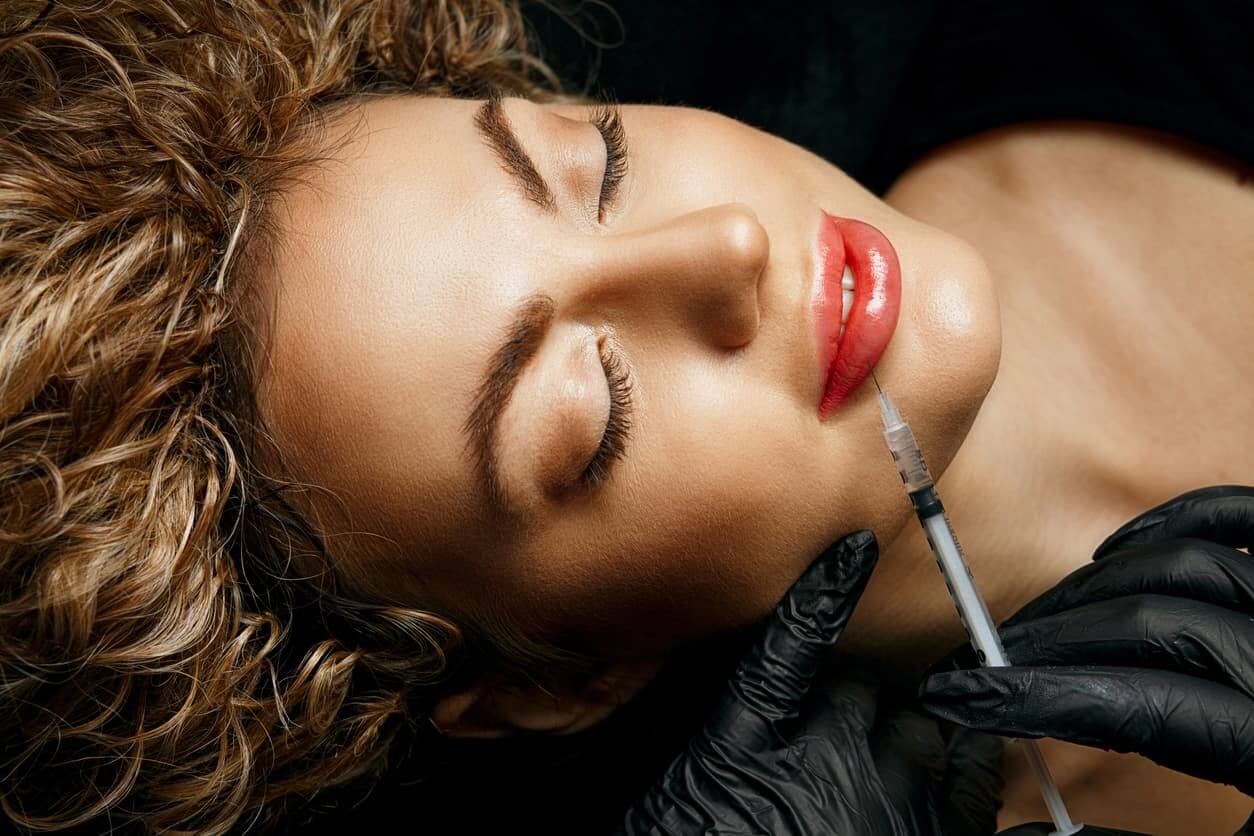Rosacea is a chronic inflammatory skin disease that can have various skin manifestations and can also affect the eyes. The skin involvement is mainly in the central part of the face, with manifestations such as redness, pimples, flushing and dilated blood vessels. More rarely, it can lead to thickening and swelling of the skin around the nose, called rhinophyma. Rosacea is most commonly diagnosed in women and in people whose skin type is most at risk for sunburn. The causes of rosacea onset are not well understood, but there are common potential triggers that can be avoided to prevent rosacea flare-ups. There are also various treatment options that can help control rosacea. These include topical creams, oral medications and V-Beam laser or Intense Pulsed Light (IPL) treatments. If you have rosacea, a personalized assessment with a healthcare professional will determine which treatment may offer the most benefit for your specific condition.
STAY OUT OF THE SUN
People with rosacea are very sensitive to sunlight. Just a few minutes in the sun can cause redness and flushing of the face’s skin. We recommend that people with rosacea wear a broad spectrum sunscreen that protects against UVA and UVB rays and has an SPF of at least 30. This sunscreen should be used daily and should preferably be unscented. It may be easier to remember to wear sunscreen if you incorporate it into your skin care routine by using moisturizers or anti-aging creams that include SPF.
BE PICKY WITH ALCOHOL
Alcohol consumption is known to cause rosacea flare-ups. Red wine can particularly trigger these flare-ups. You may be able to control these symptoms by drinking white wine instead of red and by limiting yourself to a drink or two and having a big glass of cold water after each drink.
DON’T GET TOO HOT… OR TOO COLD
Extreme temperatures, whether hot or cold, can cause rosacea flare-ups. It is recommended to avoid prolonged showers and baths with very hot water and to avoid sitting too close to a major heat source such as a radiator or fireplace. In winter, it is important to protect your face from the cold wind and to limit the time spent outdoors.

RELAX
Stress is a potential cause of rosacea flare-ups. If your flare-ups are stress-related, you can learn different stress management techniques to help prevent them. Controlled breathing, meditation and yoga are good examples.
BE SELECTIVE WITH YOUR SKIN CARE
Patients with rosacea experience high facial skin sensitivity characterized by difficulty tolerating regular cosmetics and topical products. Gentle skin care practices help reduce the symptoms of rosacea. It is very important to gently cleanse the skin at least once a day with warm water. Soap-free cleansers are generally better tolerated than traditional soap. Rosacea patients should avoid harsh mechanical rubbing and irritating topical products such as toners and chemical exfoliants. Manual exfoliation with rough sponges or cloths should also be avoided. Frequent moisturizing of the skin with moisturizers designed for sensitive skin is essential for proper control of rosacea.
VISIT YOUR AESTHETIC DOCTOR
If you’re having trouble consistently preventing rosacea flare-ups, there are non-surgical aesthetic medicine procedures that can help you.
The V-beam, for example, is a pulsed dye laser that treats redness, pimples and dilated vessels and that can help you keep your rosacea symptoms under control. After only a few treatments with the V-Beam, patients can experience tremendous benefits with little to no side effects. Intense pulsed light (IPL) is another treatment option for patients with rosacea.
As mentioned earlier, no matter what is causing your rosacea flare-ups and what you’ve already done to try to prevent them from happening again, it’s advisable to consult with a doctor who specializes in treatment of this skin condition. Your doctor may have better recommendations of what you can do at home to manage your flare-ups, what laser treatments are right for you and if your condition require other treatments, such as prescribed topical or oral medications.









